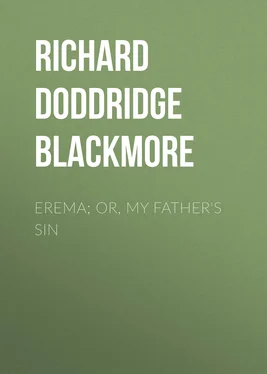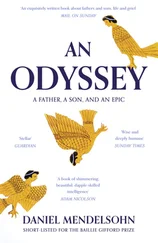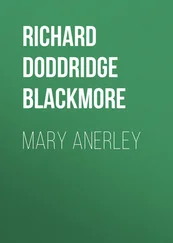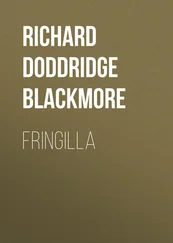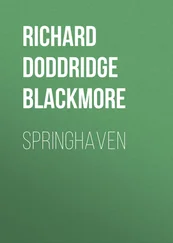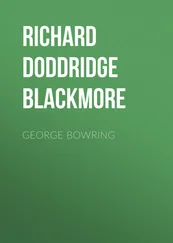Richard Doddridge Blackmore - Erema; Or, My Father's Sin
Здесь есть возможность читать онлайн «Richard Doddridge Blackmore - Erema; Or, My Father's Sin» — ознакомительный отрывок электронной книги совершенно бесплатно, а после прочтения отрывка купить полную версию. В некоторых случаях можно слушать аудио, скачать через торрент в формате fb2 и присутствует краткое содержание. Издательство: Иностранный паблик, Жанр: foreign_prose, literature_19, foreign_antique, на английском языке. Описание произведения, (предисловие) а так же отзывы посетителей доступны на портале библиотеки ЛибКат.
- Название:Erema; Or, My Father's Sin
- Автор:
- Издательство:Иностранный паблик
- Жанр:
- Год:неизвестен
- ISBN:нет данных
- Рейтинг книги:3 / 5. Голосов: 1
-
Избранное:Добавить в избранное
- Отзывы:
-
Ваша оценка:
- 60
- 1
- 2
- 3
- 4
- 5
Erema; Or, My Father's Sin: краткое содержание, описание и аннотация
Предлагаем к чтению аннотацию, описание, краткое содержание или предисловие (зависит от того, что написал сам автор книги «Erema; Or, My Father's Sin»). Если вы не нашли необходимую информацию о книге — напишите в комментариях, мы постараемся отыскать её.
Erema; Or, My Father's Sin — читать онлайн ознакомительный отрывок
Ниже представлен текст книги, разбитый по страницам. Система сохранения места последней прочитанной страницы, позволяет с удобством читать онлайн бесплатно книгу «Erema; Or, My Father's Sin», без необходимости каждый раз заново искать на чём Вы остановились. Поставьте закладку, и сможете в любой момент перейти на страницу, на которой закончили чтение.
Интервал:
Закладка:
“Now look straight afore you, missy. What do you see yonner?” The Sawyer was getting a little tired, perhaps, of this long interruption.
“I see enormous logs, and a quantity of saws, and tools I don’t even know the names of. Also I see a bright, swift river.”
“But over here, missy, between them two oaks. What do you please to see there, Miss Rema?”
“What I see there, of course, is a great saw-mill.”
“But it wouldn’t have been ‘of course,’ and it wouldn’t have been at all, if I had spent all my days a-dwelling on the injuries of my family. Could I have put that there unekaled sample of water-power and human ingenuity together without laboring hard for whole months of a stretch, except upon the Sabbath, and laying awake night after night, and bending all my intellect over it? And could I have done that, think you now, if my heart was a-mooning upon family wrongs, and this, that, and the other?”
Here Sampson Gundry turned full upon me, and folded his arms, and spread his great chin upon his deer-skin apron, and nodded briskly with his deep gray eyes, surveying me in triumph. To his mind, that mill was the wonder of the world, and any argument based upon it, with or without coherence, was, like its circular saws, irresistible. And yet he thought that women can not reason! However, I did not say another word just then, but gave way to him, as behooved a child. And not only that, but I always found him too good to be argued with—too kind, I mean, and large of heart, and wedded to his own peculiar turns. There was nothing about him that one could dislike, or strike fire at, and be captious; and he always proceeded with such pity for those who were opposed to him that they always knew they must be wrong, though he was too polite to tell them so. And he had such a pleasant, paternal way of looking down into one’s little thoughts when he put on his spectacles, that to say any more was to hazard the risk of ungrateful inexperience.
CHAPTER VI
A BRITISHER
The beautiful Blue River came from the jagged depths of the mountains, full of light and liveliness. It had scarcely run six miles from its source before it touched our mill-wheel; but in that space and time it had gathered strong and copious volume. The lovely blue of the water (like the inner tint of a glacier) was partly due to its origin, perhaps, and partly to the rich, soft tone of the granite sand spread under it. Whatever the cause may have been, the river well deserved its title.
It was so bright and pure a blue, so limpid and pellucid, that it even seemed to out-vie the tint of the sky which it reflected, and the myriad sparks of sunshine on it twinkled like a crystal rain. Plodding through the parched and scorching dust of the mountain-foot, through the stifling vapor and the blinding, ochreous glare, the traveler suddenly came upon this cool and calm delight. It was not to be descried afar, for it lay below the level, and the oaks and other trees of shelter scarcely topped the narrow comb. There was no canyon, such as are—and some of them known over all the world—both to the north and south of it. The Blue River did not owe its birth to any fierce convulsion, but sparkled on its cheerful way without impending horrors. Standing here as a child, and thinking, from the manner of my father, that strong men never wept nor owned the conquest of emotion, I felt sometimes a fool’s contempt for the gushing transport of brave men. For instance, I have seen a miner, or a tamer of horses, or a rough fur-hunter, or (perhaps the bravest of all) a man of science and topography, jaded, worn, and nearly dead with drought and dearth and choking, suddenly, and beyond all hope, strike on this buried Eden. And then he dropped on his knees and spread his starved hands upward, if he could, and thanked the God who made him, till his head went round, and who knows what remembrance of loved ones came to him? And then, if he had any moisture left, he fell to a passion of weeping.
In childish ignorance I thought that this man weakly degraded himself, and should have been born a woman. But since that time I have truly learned that the bravest of men are those who feel their Maker’s Land most softly, and are not ashamed to pay the tribute of their weakness to Him.
Living, as we did, in a lonely place, and yet not far from a track along the crest of the great Californian plain from Sacramento southward, there was scarcely a week which did not bring us some traveler needing comfort. Mr. Gundry used to be told that if he would set up a rough hotel, or house of call for cattle-drovers, miners, loafers, and so on, he might turn twice the money he could ever make by his thriving saw-mill. But he only used to laugh, and say that nature had made him too honest for that; and he never thought of charging any thing for his hospitality, though if a rich man left a gold piece, or even a nugget, upon a shelf, as happened very often, Sawyer Gundry did not disdain to set it aside for a rainy day. And one of his richest or most lavish guests arrived on my account, perhaps.
It happened when daylight was growing shorter, and the red heat of the earth was gone, and the snow-line of distant granite peaks had crept already lower, and the chattering birds that spent their summer in our band of oak-trees were beginning to find their food get short, and to prime swift wings for the lowland; and I, having never felt bitter cold, was trembling at what I heard of it. For now it was clear that I had no choice but to stay where I was for the present, and be truly thankful to God and man for having the chance of doing so. For the little relics of my affairs—so far as I had any—had taken much time in arrangement, perhaps because it was so hard to find them. I knew nothing, except about my own little common wardrobe, and could give no information about the contents of my father’s packages. But these, by dint of perseverance on the part of Ephraim (who was very keen about all rights), had mainly been recovered, and Mr. Gundry had done the best that could be done concerning them. Whatever seemed of a private nature, or likely to prove important, had been brought home to Blue River Mills; the rest had been sold, and had fetched large prices, unless Mr. Gundry enlarged them.
He more than enlarged, he multiplied them, as I found out long afterward, to make me think myself rich and grand, while a beggar upon his bounty. I had never been accustomed to think of money, and felt some little contempt for it—not, indeed, a lofty hatred, but a careless wonder why it seemed to be always thought of. It was one of the last things I ever thought of; and those who were waiting for it were—until I got used to them—obliged in self-duty to remind me.
This, however, was not my fault. I never dreamed of wronging them. But I had earned no practical knowledge of the great world any where, much though I had wandered about, according to vague recollections. The duty of paying had never been mine; that important part had been done for me. And my father had such a horror always of any growth of avarice that he never gave me sixpence.
And now, when I heard upon every side continual talk of money, from Suan Isco upward, I thought at first that the New World must be different from the Old one, and that the gold mines in the neighborhood must have made them full of it; and once or twice I asked Uncle Sam; but he only nodded his head, and said that it was the practice every where. And before very long I began to perceive that he did not exaggerate.
Nothing could prove this point more clearly than the circumstance above referred to—the arrival of a stranger, for the purpose of bribing even Uncle Sam himself. This happened in the month of November, when the passes were beginning to be blocked with snow, and those of the higher mountain tracts had long been overwhelmed with it. On this particular day the air was laden with gray, oppressive clouds, threatening a heavy downfall, and instead of faring forth, as usual, to my beloved river, I was kept in-doors, and even up stairs, by a violent snow-headache. This is a crushing weight of pain, which all new-comers, or almost all, are obliged to endure, sometimes for as much as eight-and-forty hours, when the first great snow of the winter is breeding, as they express it, overhead. But I was more lucky than most people are; for after about twelve hours of almost intolerable throbbing, during which the sweetest sound was odious, and the idea of food quite loathsome, the agony left me, and a great desire for something to eat succeeded. Suan Isco, the kindest of the kind, was gone down stairs at last, for which I felt ungrateful gratitude—because she had been doing her best to charm away my pain by low, monotonous Indian ditties, which made it ten times worse; and yet I could not find heart to tell her so.
Читать дальшеИнтервал:
Закладка:
Похожие книги на «Erema; Or, My Father's Sin»
Представляем Вашему вниманию похожие книги на «Erema; Or, My Father's Sin» списком для выбора. Мы отобрали схожую по названию и смыслу литературу в надежде предоставить читателям больше вариантов отыскать новые, интересные, ещё непрочитанные произведения.
Обсуждение, отзывы о книге «Erema; Or, My Father's Sin» и просто собственные мнения читателей. Оставьте ваши комментарии, напишите, что Вы думаете о произведении, его смысле или главных героях. Укажите что конкретно понравилось, а что нет, и почему Вы так считаете.
